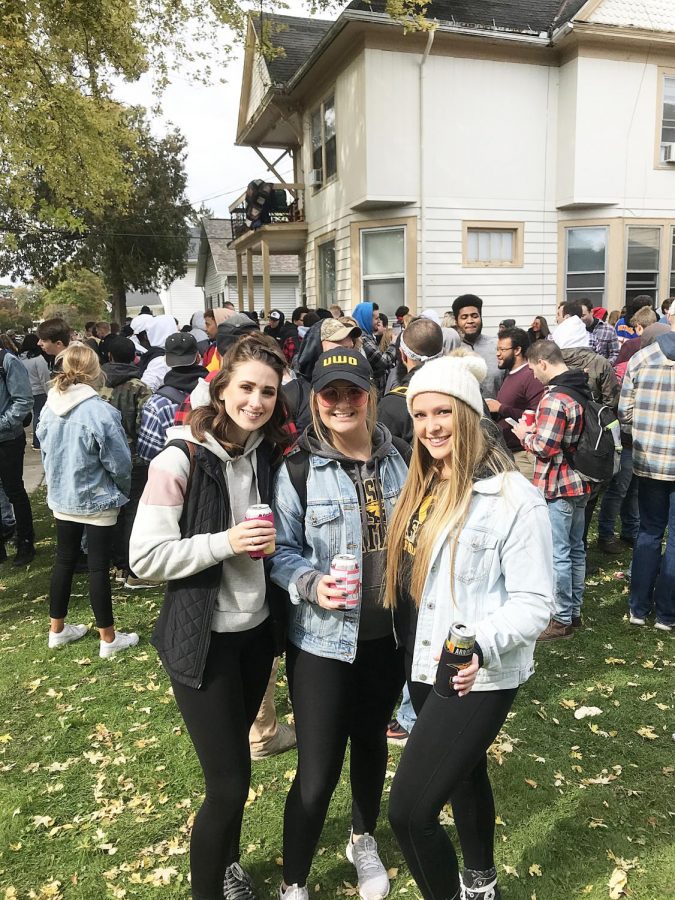Imagine going overseas to fight for your country and within four hours, you hear your first rocket approaching. You sit there and watch these rockets coming toward you, and it feels like you are watching a scene from a movie, but this is not fake. You hear about a car bomb that injured five people and then you see your buddy coming in on a stretcher covered in blood, missing his right leg with a guy on top of him doing chest compressions. These are just some of the things that our veterans have experienced. Not just once, but every day while on duty. Our veterans are holding all of these memories inside, and they’re slowly eating away at them, changing their whole outlook on life. Seeing traumatic events may cause post-traumatic stress disorder and according to Rand Corp., a research company, at least 20 percent of Iraq and Afghanistan veterans have PTSD and depression, and 30 percent of Vietnam Veterans will have PTSD at some point in their lifetime. These numbers do not include the 50 percent of veterans that do not get help. Gary Flick, a veteran at UW Oshkosh, said that the reason half of all veterans with PTSD don’t report it is because the military has trained them to think that if they go for help, they are considered weak. “I think many military-minded people, myself included, are very independent and very, very rarely ask anyone for help because it was ingrained in us that asking for help is a sign of weakness,” Flick said. “I think the military needs to do a better job of informing soldiers, sailors, airmen and Marines who have seen the unspeakable horrors of war. Flick hasn’t seen what he calls, “true war” like other veterans, and he said he receives more benefits than he could ask for, but he is willing to give some of it up for those who truly need it. “I will say with the GI Bill, veteran’s insurance options and Veterans Affairs home loan, I receive more than I could ever ask for,” Flick said. “With that said, I would happily give up some of my benefits to help the true American heroes who have fought on the front lines get the mental help they need and very much deserve.” Out of the half of veterans who do seek treatment, the RAND study shows that only half of them get adequate treatment. Studies also show that the rate of veteran suicide is much higher than previously thought. According to a 2012 Veterans Affairs suicide data report, there are as many as 5,000-8,000 thousand a year. This number is equivalent to 22 deaths a day. “I think the numbers speak for themselves,…and it is something that needs to be heavily addressed as we have been at war for over a decade, which means we have a surplus of vets,” Flick said. The same VA that had the fake waitlist scandal in 2014 where 40 veterans died waiting for care continued operating with limited staff. According to the Washington Free Beacon, a report from the Department of Veterans’ Affairs Office of the Inspector General, released Oct. 15, said 1,484 patients—45 percent—experienced delayed care between the dates of August 2014-April 2015, because of extreme staffing shortages. These shortages delayed the diagnosis and treatment of cancer, in which some of these veterans died. Todd Raley, a veteran and UW Oshkosh student said he, believes the VA has forgotten what its mission is. “The VA has the mission of caring for this nation’s Veterans,” Raley said. “I believe the VA has lost touch with that mission. It is a bureaucracy whose mission seems to be protecting itself and perpetuating the bureaucracy.” Another incident last year at the Tomah VA in Wisconsin. A veteran died because of a deadly mix of drugs prescribed to him. The Tomah VA has been called “Candyland” for its excessive prescriptions of opiates. Michael Robinson, a Vietnam veteran who has been to the Tomah VA, said he’s been fighting this for over 48 years and veterans need help. “We need help, not pill pushing help,” Robinson said. “Pills are not the answer. You have to at least help us to try to live the battle, and help us fight the battle. I mean, the battle is not going to end tomorrow, and it’s not going to end until the day I die. When I die, it’s over. I don’t have to worry about it anymore. I won’t have to fight back.” Robinson said if the average person had to experience the problems he and other veterans face on a daily basis, they would have probably have gotten the help they need by now. “When are they going to figure out that we need help man,” Robinson said. “Start working with us and believing that we are fucked up. We need help mentally, and I’m not going to make it the next month if I don’t get some fucking help, and I’ve been reaching out to [the VA] for a long time.” Robinson said that he’s at the end of his rope and people just don’t get it. We need to educate people as to what is happening to our veterans. If you see a veteran walking around campus, think about what they might have seen and what they might be going through. Thank them for their service and for protecting us and keeping America safe. Most veterans will respond by saying they were just doing their job, but it’s more than that. They risked their lives and their sanity for all of us. They are heroes.
Categories:
US veterans are not receiving adequate care from VAs
November 5, 2015
0






